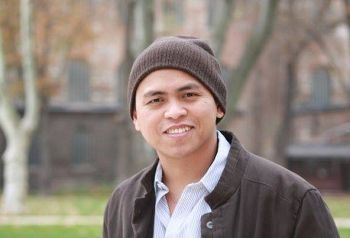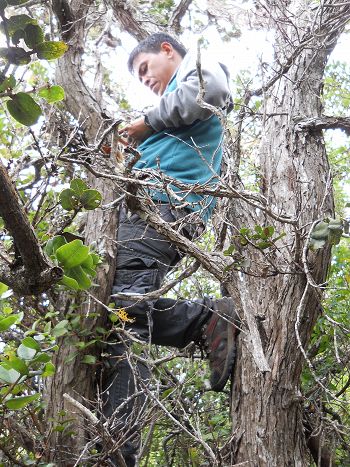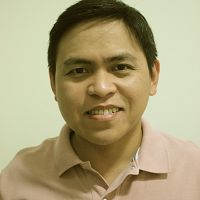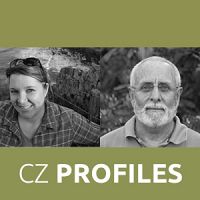Critical Zone Profile - JAIVIME EVARISTO (ecohydrologist, PhD student)
Jaivime Evaristo is an ecohydrologist who seeks to understand how, in general, vegetation dynamics and, in particular, root-water uptake affect stores of water and nutrients from hillslope to ecosystem and continental scales. He uses geochemical tracers (mostly stable isotopes) to improve model representations of local to regional and global water fluxes.
Jaivime is currently a Ph.D. candidate at the Global Institute for Water Security in Saskatchewan, Canada. He obtained a B.S. in Biology (major in Cell Biology) from the University of the Philippines-Mindanao in 2001. After several years of career in the industry, Jaivime went back to graduate school and obtained an M.S. in Applied Geosciences (major in Hydrogeology) at the University of Pennsylvania. Here, Jaivime was awarded with the Dean’s Scholar Award in 2013 for his distinguished graduate record and his work in stable isotope ecohydrology in Puerto Rico, as part of the Critical Zone Observatory (CZO) program of the U.S. National Science Foundation. In Canada, Jaivime is two-time recipient of the Saskatchewan Innovation and Opportunity Scholarship, a prestigious scholarship awarded to students whose research advances understanding in the fields of water security and environmental sustainability.
"My work revolves around a common theme: understanding the sources, flow paths, and residence times of water at various scales in space and time. Plants affect all these components in ways that are not always well understood." - Jaivime Evaristo
To the science community, my work deals with fundamental questions at the nexus of soil-plant-atmosphere dynamics. An improved understanding of which, I hope, will lead to refining the way we model (i.e. predict) processes, from rock weathering and nutrient cycling to contaminant transport and soil biogeochemical processes. To the larger human community, it is my hope that my work will lead to better appreciation of the role that vegetation plays in building our resilience to emerging hazards, from floods and droughts to water quality and water supply issues.
Studying the critical zone is important not only because humans form part of an ensemble of elements that “interact and shape” the Earth’s surface, but also because the ways with which, and extent by which, we interact with the other constituents of the critical zone are becoming more profound than ever.
Jaivime sampling for stem water isotopes up on an Ohia tree (Metrosideros polymorpha) in East Maui, Hawaii (January 2015).
The CZO network provided me with access to resources– people, time, and funding– in pursuit of the research questions I was most interested in. My M.S. work was fully funded by the CZO program, upon which my PhD dissertation expands and builds.
CZOs can help improve our understanding and management of natural resources, broadly, in two ways:
Going beyond One Site, One View – the presence of CZOs in diverse physiographic settings places the network in a rather unique position to better understand and manage our natural resources. This means that while a site-centric understanding of a natural resource issue is important, a multifaceted approach to management is now more likely than at any period in the past.
Integrative “canopy to bedrock” approach – the research collective (investigators, post docs, and students) and resources in the CZOs are aligned toward a common goal: building a wealth of knowledge about the critical zone. This means greater efficiency in achieving the research goals and in transferring the knowledge acquired. Overall, it leads to better informed natural resource management decisions.
Jaivime Evaristo, PhD student
Jaivime sampling for stem water isotopes up on an Ohia tree (Metrosideros polymorpha) in East Maui, Hawaii (January 2015).
Related News
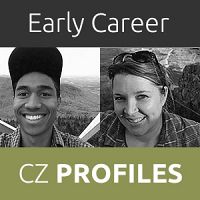
Critical Zone Profiles - Meet the people doing CZO science (Early-Career)
23 Mar 2016 - Get a sense of the people and the work. Several early-career scientists that were students at one of the CZOs are profiled here.
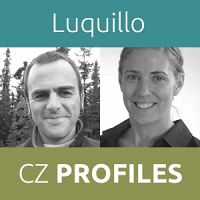
Critical Zone Profiles - Meet the people doing CZO science (Luquillo CZO)
15 Nov 2015 - Get a sense of the people and the work. Several members of the Luquillo CZO are profiled here, including students and professors.
Explore Further

